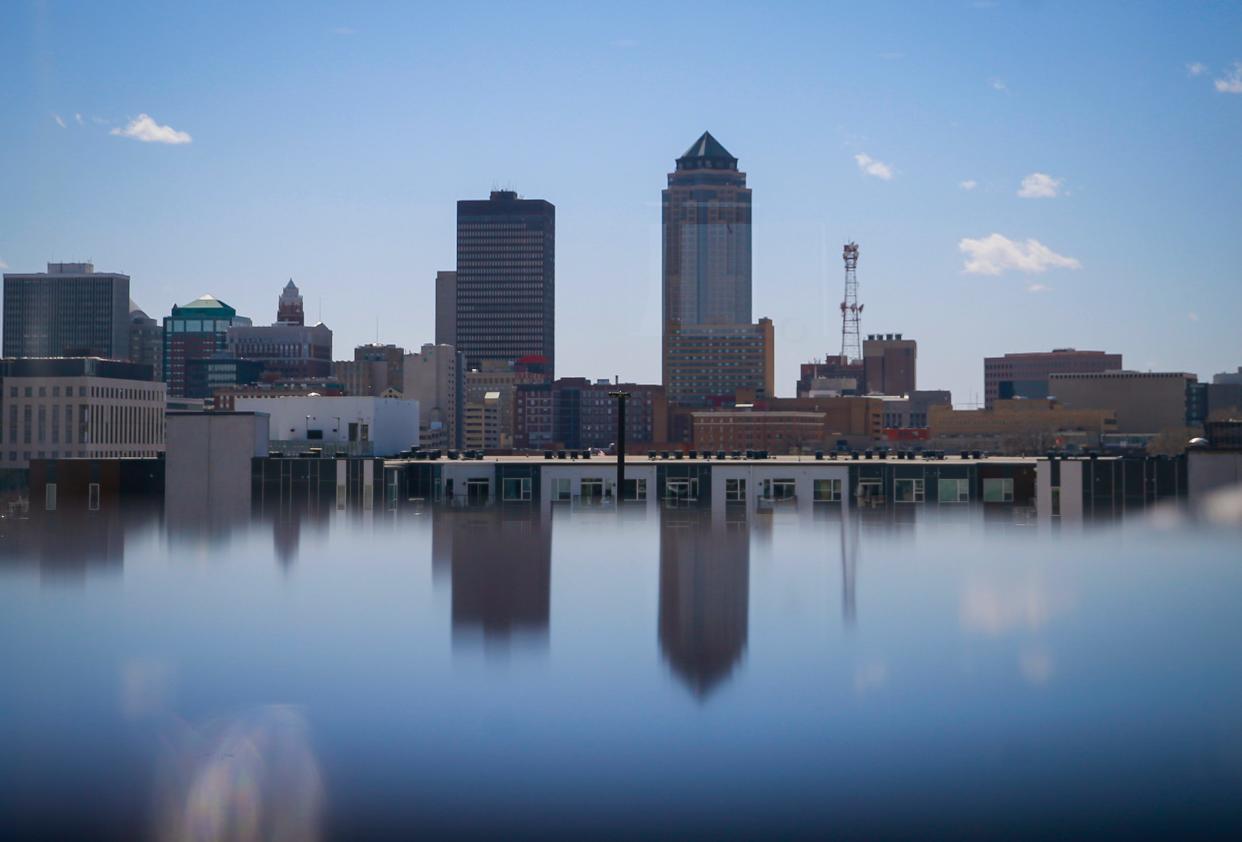New study adds to Des Moines metro's accolades as millennial mecca, ranking it No. 1

Not for the first time, the Des Moines metro is being hailed as a mecca for millennials: A new analysis concludes Des Moines is the best mid-sized metro in the nation for people ages 25 to 39.
The study was conducted by commercial real estate listing website CommercialCafe, part of the international Yardi real estate software company. Separately ranking large and mid-sized metros (a group of 500,000 to 1 million population that includes Des Moines, population 729,653, it crunched U.S. Census data for:
Growth of the millennial population from 2017 to 2021.
The millennial share of the total population.
Median income for millennial-headed households.
The proportion of the millennial population with employer-provided health insurance coverage.
Millennial educational attainment.
The overall cost of living and unemployment rate.
Each category counted for up to 15 points, with the exception of educational attainment, at 10 points. The study found that among mid-sized metros, Des Moines:
Had the largest increase from 2017 to 2021 in millennial population.
Had the largest share of millennial population, at 22%.
Was the second most-affordable in the Midwest.
Was fourth for median annual millennial household income, at $83,156.
Had the fourth-highest proportion of millennials with at least a bachelor's degree, at 44%.
Des Moines metro records nation's highest score
With a score of 80.3, the highest for metros in either the large or mid-sized category, Des Moines easily bested mid-sized competitors Madison, Wisconsin (No. 2), and Omaha, Nebraska (No. 5). It also ranked above Ogden-Clearfield, Utah (No. 3); Boise, Idaho (No. 4); Durham-Chapel Hill, North Carolina (No. 6); Portland, Maine (no. 7); Charleston, South Carolina (No. 8); Northwest Arkansas (Fayetteville, Springdale, Rogers and Bentonville, No. 9); and Harrisburg-Carlisle, Pennsylvania.
Large Midwestern urban areas Des Moines ranked above in total points were Minneapolis-St. Paul, ninth on the list of large metros, and Kansas City, which ranked 10th. Other cities on the large metros list, all of which Des Moines' score exceeded, are San Jose-Sunnyvale-Santa Clara, California (No. 1); Austin, Texas (No. 2); San Francisco (No. 3); Salt Lake City (No. 4); Seattle-Tacoma (No. 6); Raleigh, North Carolina (No. 7); and Nashville, Tennessee (No. 8).
Praise for Des Moines as millennial destination
The accolade adds to a long string regarding Des Moines' appeal to millennials. In 2014, Realtor.com first identified Des Moines as "a favorite for millennial share of households and millennial household growth," and Wells Fargo in 2015 ranked the city No. 1 for its share of millennial-aged mortgage holders.
In 2016, The Atlantic published a feature-length article focused on the region's low housing prices, titled "Why Des Moines Is a Millennial Paradise Right Now." It declared that "Des Moines appears to be the most Millennial-friendly city in America, at least in terms of its housing market."
In 2017, Growella, a since-shuttered millennial-focused website, released a study that found Des Moines was "the #1 Best Place for Millennials to Live in the Midwest and the #4 Best Place for Millennials to Live in the United States," according to the Des Moines Partnership.
The following year, livability.com published it own take, titled "Heartland Hotspot: Why Millennials Are Flocking to Des Moines." It called the city "one of the most exciting ― and underrated ― cities in America and added, "Young people are falling in love with Des Moines. Once you see why, you may want to join them." Lending Tree the same year rated Des Moines the No. 1 city for millennial homebuyers.
In 2020, Insider declared Des Moines fifth among "The 17 best US cities for millennials to live in after the coronavirus," touting the metro's high percentage of jobs allowing remote work. (It rated Ames a notch higher, at fourth.) On a similar theme, the National Association of Realtors published a research paper, "Top Ten Most Favorable Areas for Millennials During the Pandemic," giving the metro the highest home purchase and rental affordability scores among those on the list.
Also in 2020, the National Association of Realtors, in an article titled "Why Millennials Love Des Moines," said millennials "are flocking to Des Moines," citing the metro's low cost of living, high-tech job growth and sense of community. It quoted liberally from a Des Moines Register op-ed by Ross DeVol, head of Heartland Forward, a nonpartisan nonprofit promoting economic renewal in the central states, including Iowa. Titled "Des Moines is 'flyover country' no more: Millennials choose Heartland," it praised Des Moines' "booming millennial population."
"A large millennial population is key for a successful economy, and by this measure Des Moines fares better than any other city of its size in the Heartland region," DeVol wrote.
This article originally appeared on Des Moines Register: New study: Des Moines metro No. 1 midsize city for millennials

